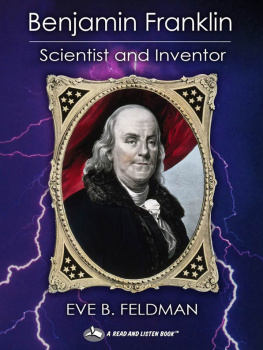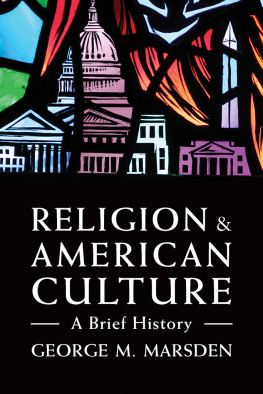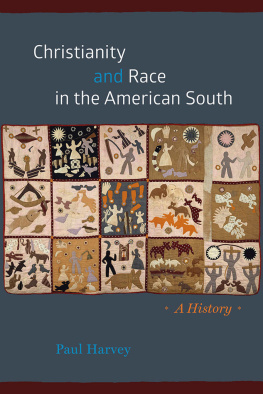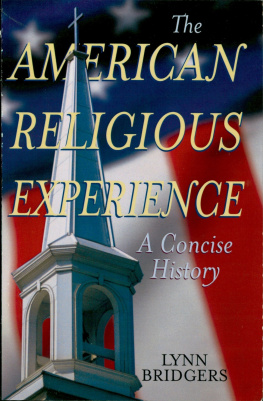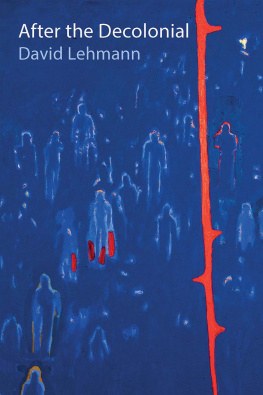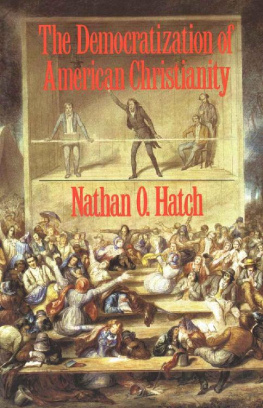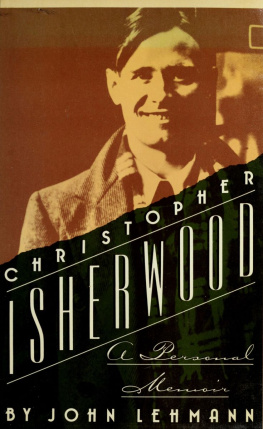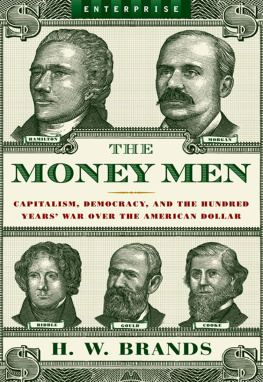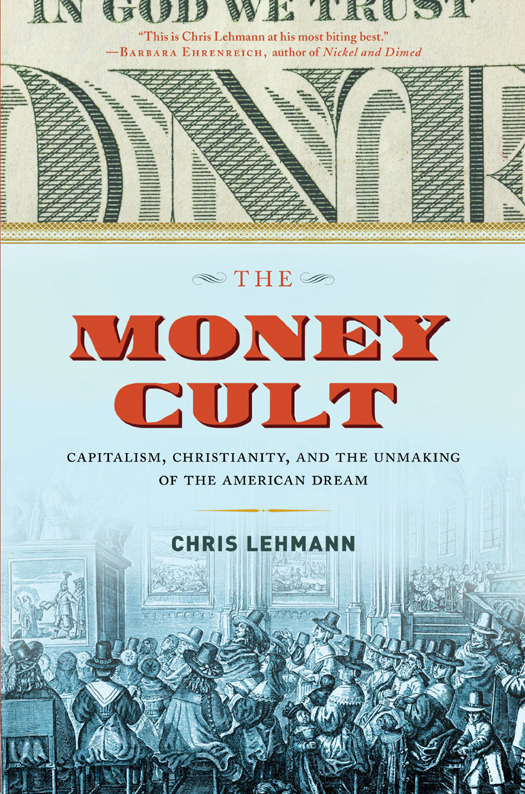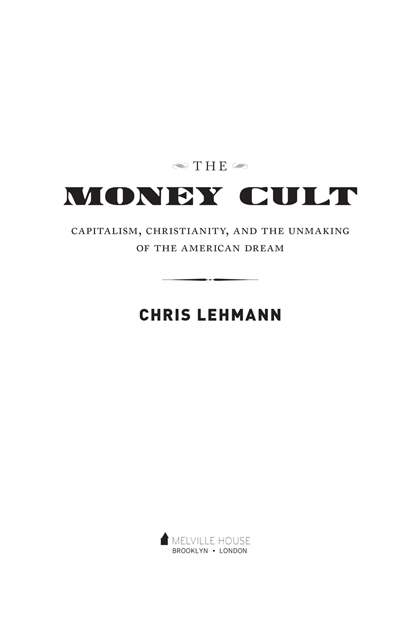THE MONEY CULT
Copyright 2016 by Chris Lehmann
First Melville House Printing: May 2016
Melville House Publishing
46 John Street
Brooklyn, NY 11201
and
8 Blackstock Mews
Islington
London N4 2BT
mhpbooks.comfacebook.com/mhpbooks@melvillehouse
Ebook ISBN: 978-1-61219-509-4
Design by Marina Drukman
v3.1
To Deborah, without whom nothing
In the Middle Ages priests spoke only of the other life; they scarcely worried about proving that a sincere Christian can be a happy man here below. But American preachers constantly come back to earth and only with great trouble can they take their eyes off it It is often difficult to know when listening to them if the principal object of religion is to procure eternal felicity in the other world or well-being in this one.
ALEXIS DE TOCQUEVILLE
CONTENTS
Introduction
PAY TO PRAY
In the midst of a recent slew of personal trials, I got a hand-addressed letter, in a gray greeting-card envelope. When I glanced at the envelopes Houston postmark, I scoured my memory to think of anyone I knew in that sprawling east-Texas metropolis. Maybe one of the confidants Id corresponded with during my painful, still-pending divorce had moved? Idly, I opened the envelope expecting to be greeted with some friends report of a new job, new relationship, or new research sabbatical in the Southwest.
Instead, the greeting card inside bore a simple inscription on its front: the word hope, in a white reverse-type cursive script, just above a name that, for many Protestant believers in America today, is a virtual synonym for that elusive, serene condition: Joel Osteen.
Osteen is the beaming, gently drawling prophet of the new millennial prosperity gospelor the theology of abundance, as hes more decorously given to call it. Sermons from his Houston megachurch, Lakewoodthe former Compaq Center, a 16,000-seat sports arena where the Houston Rockets once playedare broadcast to millions of viewers every Sunday. And his core message is that the Christian God is an indulgent, amply rewarding father, doling out unlimited success to his devoted followers. Why put limits on God? is a frequent refrain in Osteens preachingand its meant to convey that God, in turn, intends to place no limits on your own worldly success and achievement.
This was very much the message that came appended to my own quasi-personalized greeting card. Beneath a hand-scrawled salutation, the body of the card opened with a scripture quotation, from Proverbs 13:12: Hope deferred makes the heart sick, but a dream fulfilled is a tree of life. Osteen then assured me that he and Victoriahis wife and co-ministerbelieve with all our hearts that God wants your dream to come true.
To speed Gods plan along, the Osteens proposed to recite a personal prayer on my behalf. Perhaps, they said, my dream was to have a family or see someone in your family healed. Or maybe its to have a home or new job. Whatever your dream is, the pitch continued, you must know God cares and so do we. Ive enclosed a small card for you to write your dream on and send back to us. We want to pray for you. We believe in the power of prayer!
That last exclamation seemed a bit defensiveas though I might doubt the efficacy of the Osteens own faith in their chosen method. In reality, though, it was the prelude to the main pitch: As you write down your dream, I am asking you to invest in a dreamthe further expansion of the Osteen ministry. Your gift will allow people to hear the Gospel, experience the unconditional love of Jesus and discover Gods plans for their lives. Thats a dream worthy of your best gift. For good measure, my anonymous pen-wielding correspondent in Houston had appended a handwritten note: Chris, Please give your best gift. The message of hope is making a difference! God bless!
Sure enough, alongside the blank index card that was to carry my dream (together with my name and my email address) to the Osteen ministry, there was a handsome form that offered a pair of premiums in exchange for my prayer-enabling donation; a contribution of any size would yield an inspiring 4-message CD/DVD resource called With You For You, whereas a gift of more than $125 would net a special leather-bound edition of Osteens Hope for Today Bible. On the reverse side of the form, where you filled in your credit card information, you were nudged further into setting aside monthly donations, to be automatically debited on your card, with a helpful disclaimer explaining that IRS regulations permit you to deduct contributions in excess of the fair market value of goods received from this ministry. Your full contribution benefits the expansion of Joel Osteen Ministries.
This random fund-raising encounter forms a perfect set piece in what Ive come to call the Money Cult: the frank celebration of wealth as a spiritual virtue in American Protestantism. The Osteen operation, no slouch in divining the soft spot in a marketing appeal, knew that I might be in search of some badly needed life affirmationand, perhaps, new spiritual support: I had, the month earlier, attended the couples Night of Hope rally in the Washington Nationals stadium, on an assignment from Salon.com. And its true that in my own personal distress, I had picked up their cleverly packaged appeal under the vague impression that it might contain, if not a message of hope, then at least a welcome personal missive.
What I got instead was, in many ways, what the core message of popular Protestant faith has boiled down to in post-meltdown America: a contract to pray my way into a better life in exchange for a best gift that would ideally be somewhere north of $125or better yet, a tax-deductible tithing arrangement of indefinite duration. Such appeals are now so common in the materially expansive faith of Protestant culture in America that they pass unremarked; the Osteens send out countless such fund-raising pitches, and our pulpits and bestseller lists abound with a gospel of spiritually self-made success. For the most part, all this glides serenely above the pinched and unyielding conditions of our actual political economy, which now largely confines the spread of prosperity to the already-prosperous. The message of a great deal of Protestant worship in the Osteen era plays a crucial role in mediating this awkward contradiction; why question any of the cartelized and cronyist arrangements that make up the market culture we casually idolize, when it is so self-evidently the handiwork of the Creator? By minting the promise of individual salvation into a precept of economic advancement, todays prophets of prosperity bypass entirely matters of economic justice as they pertain to Christian moralitywhile also embodying a new gospel of success that conflates material reward and punishment with the eternal, prophetic kind.
Protestant piety in the United States has had an often fulsome, occasionally fraught relationship to the quest for material wealth, but never before has it transacted a vision of spiritually sanctioned prosperity on such a blunt pay-to-play basis on such a vast scale. In the not-so-distant past, Oral Robertsthe most prominent prosperity minister in the postwar erawas treated as a late-night TV punchline for mounting a bald fund-raising pitch around the threat that the Lord would be calling Roberts home if he failed to meet his allotted quota of $8 million to rescue his eponymous Oklahoma-based university from a sea of red ink. Now, however, the link between the personal discipline exacted by ones faith and the promised expansion of ones bottom line is so casually reiterated in the evangelical world that its become banal. In bestselling tracts such as Osteens


